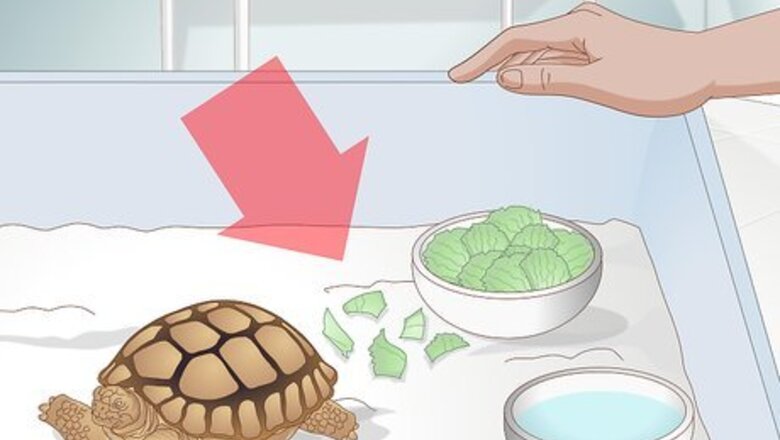
views
X
Research source
When a tortoise gets stomatitis, it makes it very difficult for them to eat and it can become an infection that travels to other parts of the body. This is a painful infection that has a variety of causes but is easy to treat if caught early. In order to catch it early, you need to know and look for the signs of infection, and you should bring your tortoise to a veterinarian if you suspect an infection.
Spotting the Signs of Stomatitis
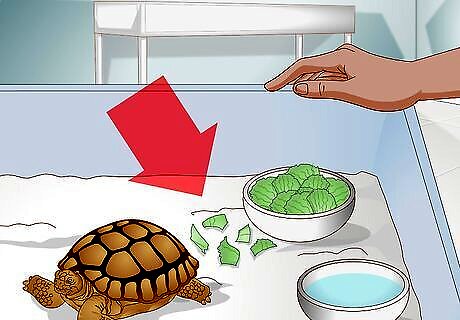
Pay attention to your tortoise's appetite. When a tortoise is having issues inside of their mouth, changes to their food consumption may be the first signal. If your tortoise is eating less than they usually do, then they may have a problem developing. If you have had your tortoise for awhile, it should be easier for you to tell that something is off.
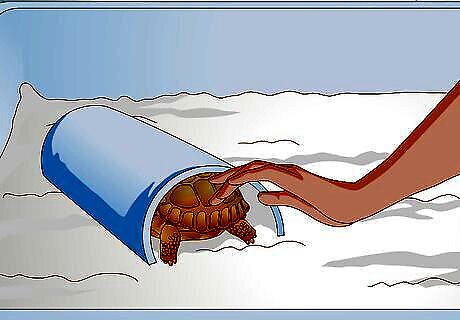
Look for signs of discomfort or stress. It can be hard to gauge the mood or stress level of a tortoise; however, if you have had your pet for awhile, then you may be able to judge a change in mood or activity level. Changes to regular routine or disposition can be signs of illness. Does your tortoise usually let you get close to them but is currently acting shy or aggressive? That may be a sign of distress.
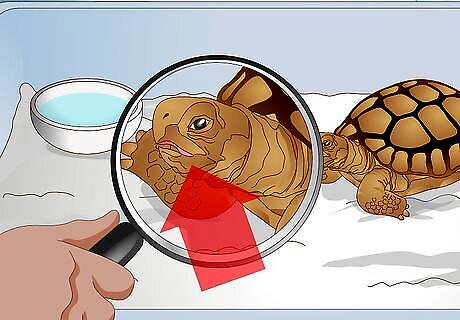
Inspect your tortoise's mouth. If you can get close enough to your pet, look inside their mouth for signs of infection. Look for unusual redness; ulcers; a white, mucus-like substance; a yellowy, cheese-like discharge inside the mouth; or broken blood vessels — all signs of stomatitis. The discomfort of stomatitis is many times accompanied by drooling, so stay on the lookout for that as well. Additionally, a tortoise with stomatitis may rest with their mouth open, as this may be more comfortable.
Getting a Veterinary Diagnosis
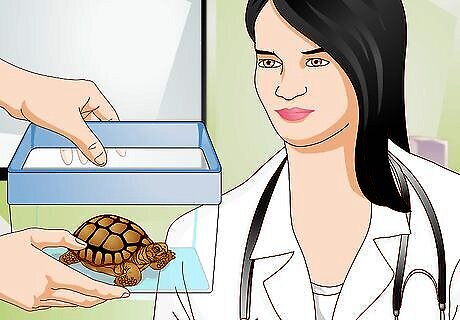
Take your tortoise to a veterinarian. Your veterinarian will do a veterinary history, asking you what symptoms your tortoise has and when you first noticed them, in addition to questions about your general care practices for the tortoise. Then the vet will take a look at the tortoise and will usually take swabs of the affected area to analyze. Your vet may also want to take a sample of your tortoise's blood so they can assess your pet's general health in light of the infection.
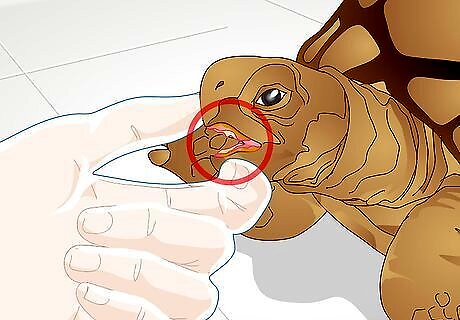
Get a diagnosis. Because stomatitis is a general term for infection of the mouth, it can be caused by a variety of factors. Your veterinarian's tests will likely give them a general understanding of the underlying issues and will hopefully give them a clue as to how the infection should be treated. In most cases, stomatitis is caused by a bacterial infection; however, there can be additional factors that contribute, and exacerbate, the infection. This can include trauma to the mouth or even just stress the animal is undergoing.

Discuss treatment options. Because your tortoise's problem may be caused by a wide variety of things, your veterinarian may suggest any number of treatments. This can range from a thorough cleaning and debridement of the area (meaning removal of damaged tissue), to antibiotic or anti-fungal medications, or even surgery. Part of the treatment for stomatitis will rely on you at home. You will need to keep your tortoise's mouth clean, as well as keeping their home clean as well, while they are recovering.
Preventing Stomatitis
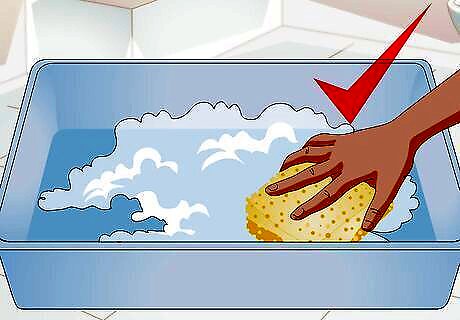
Keep your tortoise's home clean. Many times small infections clear up on their own if a pet is living in clean, well-kept home; however, if your pet is living in a dirty home, an infection is likely to have a hard time healing and it can become really infected. This can be the case with stomatitis. In the case of stomatitis, a small trauma, such as a cut, can develop into a serious infection like if exposed to bacteria in a dirty cage. Check to make sure your tortoise's home is the correct temperature and humidity.
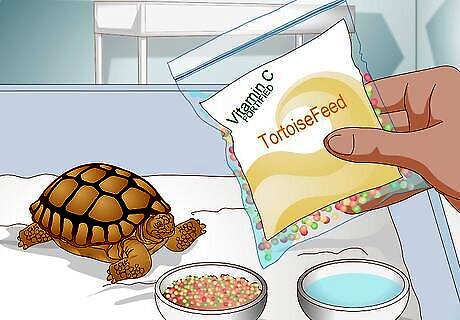
Check your tortoise's diet. Stomatitis (also known as "mouth rot") develops if the tortoise's immune system is weak. This can be due to poor diet, specifically low Vitamin C intake. Discuss your tortoise's diet with their vet to determine if your tortoise needs to take supplements or change their diet in some way.
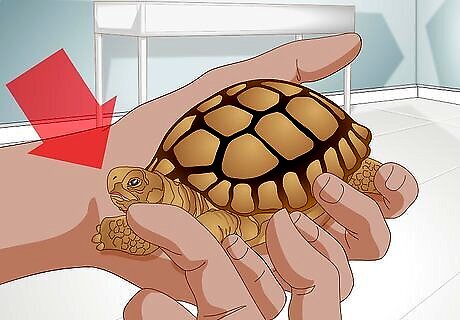
Inspect your tortoise's health regularly. It is a good idea to assess your tortoise's health and behavior on a regular basis so that it is easier to spot when something is wrong. Look over their whole body, including inspecting their shell for damage and their ability to move their body. Also look at your tortoise's beak. If your tortoise has a broken or damaged beak this can cause trauma, which can lead to stomatitis. A good time to do this is when you are cleaning your tortoise's cage. Pull the tortoise out and look them over while you also freshen up their home.
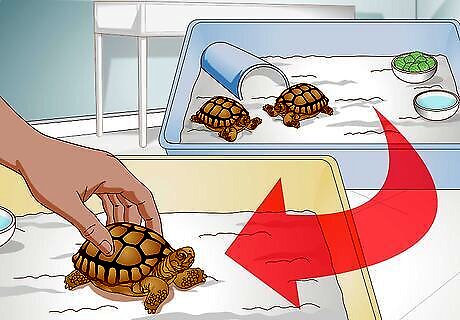
Keep infected tortoises away from healthy ones. Some forms of stomatitis are infectious, meaning they can transfer from one pet tortoise to another. If only one of your tortoises has an infection, it's a good idea to isolate that tortoise so they don't accidentally infect the others. For example, some cases of stomatitis are caused by a herpesvirus that can be transferred, although usually transfer happens most often in mixed-sex groups of tortoises.
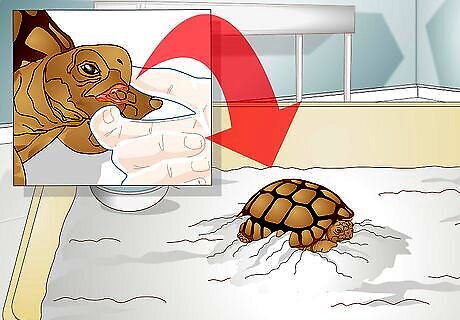
Have your tortoise checked out before hibernation. Stomatitis is a common post-hibernation complication. Ensure your tortoise is in good health prior to hibernation by getting a check up with a reptile vet.

















Comments
0 comment